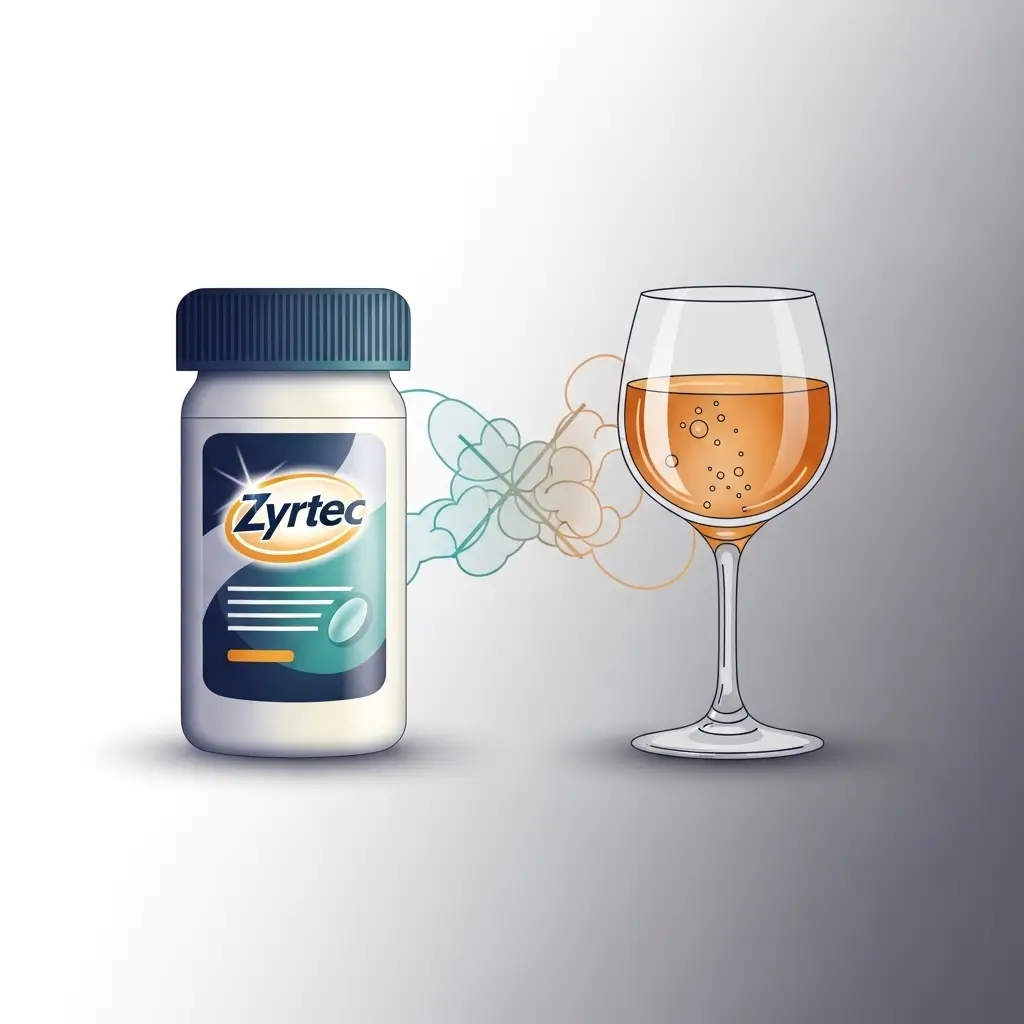A Dangerous Substitute for Alcohol
The term "meths drinker" describes individuals who consume methylated spirits as a substitute for alcohol. This practice represents one of the most dangerous forms of substance abuse, with even small amounts capable of causing blindness, organ failure, or death. When someone turns to methylated spirits, it signals a desperate stage of addiction that requires immediate medical attention.
Methylated spirits, also known as denatured alcohol, starts as ethanol—the same alcohol found in beer, wine, and liquor. However, manufacturers deliberately add toxic substances to make it poisonous and undrinkable. These additives serve a dual purpose: preventing human consumption and allowing the product to avoid the high taxes imposed on drinking alcohol.
The most common and dangerous additive is methanol, which the human body cannot process safely. Other additives include pyridine, which creates a foul smell, and various colorings like purple or blue dye to make the product visually unappealing. Ironically, these warning signs become invisible to someone in the grips of severe alcohol addiction.
Who finds themselves drinking methylated spirits? This behavior typically emerges from a combination of severe alcohol addiction, extreme poverty, and lack of access to safer forms of alcohol. People experiencing homelessness, those with untreated mental health conditions, or individuals who have exhausted their financial resources often turn to these industrial products. At Prescott House, we've worked with individuals who started consuming household products after losing everything to their addiction—a heartbreaking reminder that addiction doesn't discriminate.
The Extreme Dangers of Drinking Methylated Spirits
Methanol Poisoning: A Medical Emergency

The primary threat comes from methanol, which transforms into deadly substances once inside the human body. The liver breaks down methanol into formaldehyde, then into formic acid—the same compound that makes ant stings painful. These toxic byproducts attack the nervous system, particularly targeting the optic nerve and brain.
The quantities involved are shockingly small. Consuming just 10 milliliters of methanol—roughly two teaspoons—can cause permanent blindness. Only 15 milliliters can prove fatal. To put this in perspective, a single gulp of methylated spirits often contains enough methanol to cause severe, irreversible damage.
Immediate and Delayed Symptoms of Poisoning
Methanol poisoning creates a dangerous illusion during its initial stages. The first symptoms often mirror regular alcohol intoxication: dizziness, nausea, confusion, and drowsiness. This similarity tricks both the person consuming it and observers into believing the situation is manageable.
The real danger emerges after a latent period of 12 to 24 hours. During this time, the body continues converting methanol into toxic substances while the person may feel relatively normal. Then severe symptoms strike: excruciating abdominal pain, blurred vision often described as "snowstorm vision," severe breathlessness, and metabolic acidosis that can shut down organ systems.
This delayed onset creates a false sense of security that proves tragically misleading. By the time serious symptoms appear, significant damage may already be irreversible.
Long-Term Health Consequences

Survivors of methanol poisoning face a lifetime of devastating health complications. The toxic byproducts of methanol metabolism cause permanent damage that no amount of medical intervention can fully reverse. Understanding these consequences helps illustrate why consuming methylated spirits represents such a catastrophic gamble with one's life.
Vision loss remains the most common long-term effect, ranging from partial sight impairment to complete blindness. The formic acid produced during methanol metabolism specifically targets retinal cells and the optic nerve. At Prescott House, we've supported clients who lost their sight after just one desperate attempt to satisfy their alcohol cravings with methylated spirits. The psychological impact of sudden blindness, combined with ongoing addiction struggles, creates complex treatment challenges that require specialized care.
Neurological damage extends far beyond vision problems. Many survivors experience persistent headaches, memory problems, difficulty concentrating, and coordination issues. Some develop seizure disorders or experience personality changes that strain relationships and complicate recovery efforts. The brain damage can mimic symptoms of dementia or traumatic brain injury, making it difficult to distinguish between addiction-related behaviors and actual cognitive impairment.
Liver damage represents another serious concern. While the liver works to process methanol, it sustains significant cellular damage in the process. This creates a dangerous cycle: individuals with severe alcohol addiction already face liver compromise, and methanol exposure compounds this damage exponentially. The result can be liver failure requiring transplantation—if the person survives long enough to receive one.
Recognizing the Warning Signs of Methanol Poisoning
Early Detection Can Save Lives
Recognizing methanol poisoning requires understanding both the immediate and delayed symptoms, as well as the circumstances that might lead someone to consume methylated spirits. Emergency responders and healthcare workers often miss early signs because they closely resemble regular alcohol intoxication.
The initial presentation typically includes slurred speech, unsteady walking, confusion, and nausea—symptoms that emergency room staff see regularly in cases of alcohol intoxication. However, certain red flags should raise immediate concern. If someone presents with these symptoms but has an unusual breath odor, complains of severe abdominal pain, or mentions consuming "cleaning products" or "rubbing alcohol," methanol poisoning becomes a strong possibility.
Family members and friends should watch for specific warning signs that distinguish methanol poisoning from regular intoxication. Vision complaints represent the most significant red flag. Someone might describe their vision as "foggy," mention seeing spots or flashing lights, or complain that lights seem too bright. They might stumble not from unsteadiness but because they genuinely cannot see obstacles clearly.
Breathing patterns provide another crucial clue. Methanol poisoning causes metabolic acidosis, forcing the body to breathe rapidly and deeply in an attempt to restore chemical balance. This creates a distinctive breathing pattern called Kussmaul respiration—deep, labored breaths that sound different from normal intoxication.
When to Seek Emergency Care
Any suspicion of methanol consumption requires immediate emergency medical attention. This cannot be emphasized strongly enough: methanol poisoning is always a medical emergency that demands professional treatment. Well-meaning attempts to "let someone sleep it off" or provide home remedies can prove fatal.
Call emergency services immediately if someone exhibits vision problems after consuming any form of alcohol, especially if they cannot identify exactly what they drank. Don't wait for symptoms to worsen or assume the person will recover with time. The window for effective treatment narrows rapidly, and delay can mean the difference between recovery and permanent disability or death.
When speaking with emergency responders, provide specific information about what the person consumed. Mention any household products, cleaning supplies, or industrial alcohols. If possible, bring containers or labels with you to the hospital. This information helps medical teams choose appropriate treatments and potentially contact poison control centers for specialized guidance.
At Prescott House, we've learned that families often hesitate to seek emergency care due to shame or fear of legal consequences. However, most emergency rooms prioritize medical treatment over other concerns, and many states have Good Samaritan laws protecting individuals who seek medical help during overdose situations. The risk of permanent disability or death far outweighs any other considerations.
Finding Hope and Help: A Path Forward
The reality of methylated spirits consumption represents one of addiction's most desperate and dangerous expressions. When someone reaches the point of drinking industrial alcohol, they're not making a choice—they're trapped in a disease that has stripped away their ability to prioritize their own survival. Understanding this distinction is crucial for family members, friends, and communities who want to help.
The medical dangers we've discussed—blindness, organ failure, brain damage, and death—underscore why this situation demands immediate intervention. There is no safe amount of methylated spirits consumption, and every instance represents a potential medical emergency. However, behind these stark medical realities lies a more hopeful truth: addiction is a treatable condition, and recovery is possible even in the most severe cases.
At Prescott House, we've witnessed remarkable transformations in individuals who once consumed household products to satisfy their addiction. With proper medical care, comprehensive treatment, and ongoing support, people can and do recover from even the most advanced stages of alcoholism. The key lies in recognizing that someone drinking methylated spirits needs immediate medical attention followed by specialized addiction treatment—not judgment or shame.
For families watching a loved one struggle with this level of addiction, remember that your compassion and quick action can save their life. Don't wait for them to ask for help or reach what you think might be "rock bottom." If you suspect someone has consumed methylated spirits, call emergency services immediately. If you're concerned about someone's drinking reaching dangerous levels, reach out for professional guidance before a crisis occurs.
Recovery from severe alcohol addiction requires professional support, medical supervision, and often long-term treatment. But it begins with a single step: recognizing that help is available and that no one has to face addiction alone. Whether someone is drinking methylated spirits out of desperation or simply struggling with alcohol dependency, specialized treatment programs can provide the medical care, therapy, and support systems necessary for lasting recovery.
If you or someone you love is struggling with alcohol addiction—at any stage—please reach out for help today. At Prescott House, our experienced team understands the complexities of severe addiction and provides compassionate, evidence-based treatment designed to help individuals reclaim their lives. Recovery is possible, hope is real, and help is available right now.
Don't wait for tomorrow. Call Prescott House today at [phone number] to speak with one of our addiction specialists about treatment options. Your call is confidential, and our team is here to help you take the first step toward recovery.















